UK and EU leaders make an important trade deal
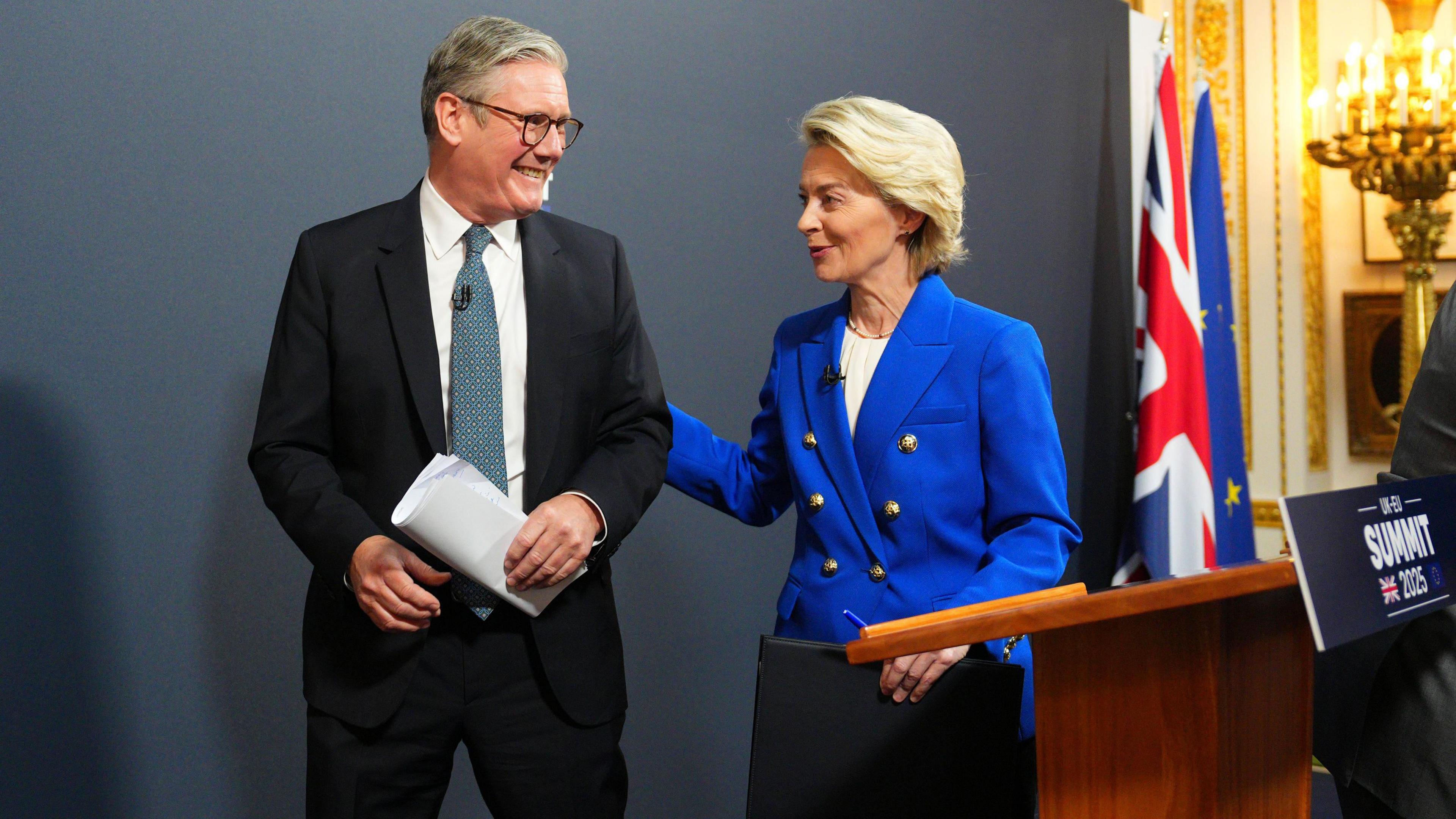
UK Prime Minister Sir Keir Starmer and European Commission President Ursula von der Leyen gave a speech to journalists about the deal
- Published
Leaders from the UK and European Union (EU) have taken part in a big meeting to agree to a trade deal.
UK Prime Minister Sir Keir Starmer held the talks at Lancaster House in London, and met with European Commission President Ursula von der Leyen and other senior leaders, before holding a news conference to talk about what has been agreed.
One of the main reasons for the meeting was to help "reset" relations between the UK and EU, after the UK left the EU on 31 January 2020, a process known as Brexit.
The leaders discussed things like food and drink trade, fishing, education, travel, the environment and security.
European Commission President von der Leyen called the deal "historic" and a "success" and Sir Keir Starmer describes it as a "landmark" deal between the EU and an "independent" UK, marking a "new era" in relations but the Conservative Party and Reform UK have criticised the agreement.
- Published4 January 2021
- Published31 January 2020
What is the EU?
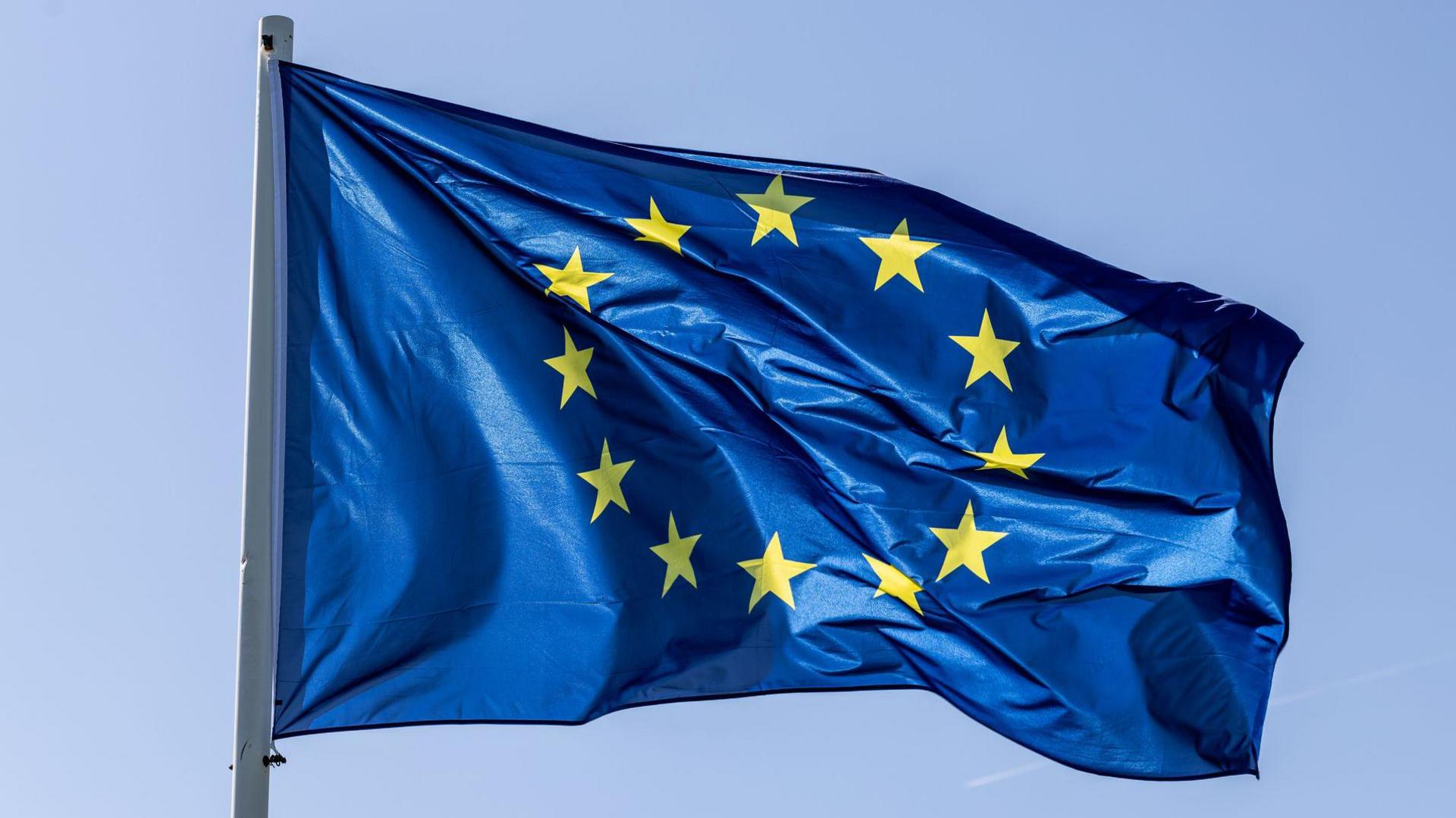
The European Union (EU) is a club of 27 countries from around Europe, whose governments work together.
They are: Austria, Belgium, Bulgaria, Croatia, Republic of Cyprus, Czech Republic, Denmark, Estonia, Finland, France, Germany, Greece, Hungary, Ireland, Italy, Latvia, Lithuania, Luxembourg, Malta, Netherlands, Poland, Portugal, Romania, Slovakia, Slovenia, Spain, and Sweden.
The EU has its own parliament, anthem, and a list of rules and benefits for all of its members.
It works to promote peace, human rights and equality, protect the environment and promote sustainability, respect and protect culture and heritage, set health and living standards, and invest in education and research.
It was formed in 1957 after World War Two, as a way to promote peace and prosperity in Europe by allowing the countries in it to work together more closely.
The UK joined in 1973 and was part of the EU for 47 years before Brexit.
Many countries in the EU also use a special currency called the euro.
What was Brexit?
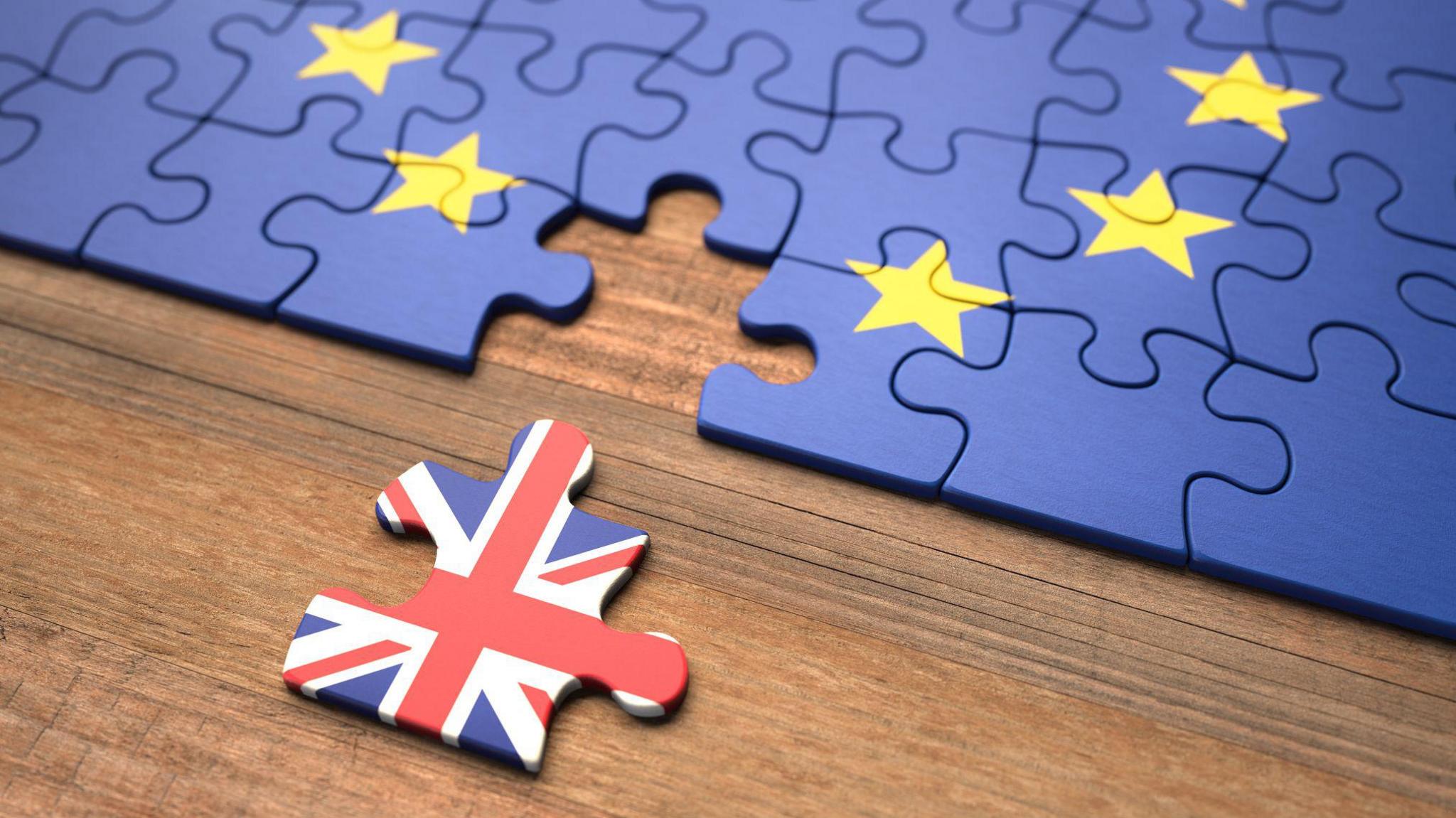
On 23 June 2016, UK adults voted for the UK to leave a group of countries called the European Union (EU).
It's most commonly referred to as Brexit, a word made up of the words 'Britain' and 'exit'.
The UK was first due to leave the EU at 11pm on Friday 29 March 2019, but this didn't happen.
It was rescheduled for the 31 October 2019, and then extended with UK and EU politicians trying to make the final arrangements for Brexit to happen.
In the end the UK officially left the EU on 31 January 2020 but then there was an 11 month transition period.
During the transition period the UK stayed under EU trading rules to give leaders time to work out between them what the relationship between the UK and the EU would be like.
What has been agreed in the trade deal?
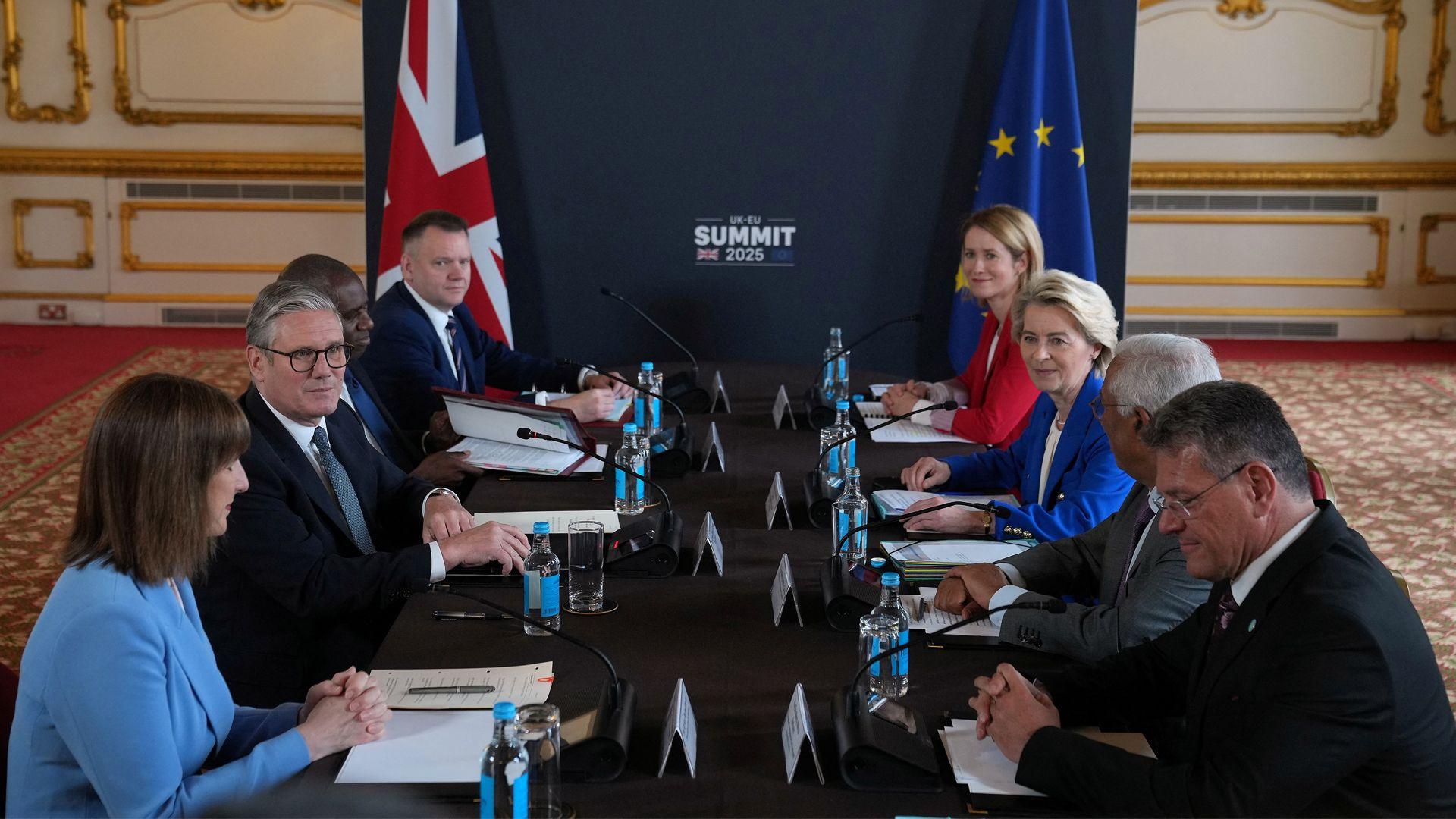
UK and EU leaders met to discuss trade at an important summit
Some of the main topics that were discussed in the meeting were: food and drink trade, fishing, education, travel, the environment and security.
Food and Drink - The UK and EU have agreed to a deal that would make it easier for the UK to sell food and drink - like Scottish salmon, British sausages and burgers - to countries in the EU, by reducing the amount of checks that need to take place at borders.
Fishing - In return, the UK and EU have agreed to a 12-year deal which will allow EU fishing boats to fish in UK waters until 2038. Each year the UK and EU will meet to discuss quotas of the amount of fish allowed to be caught, and issues licenses to people to allow them to fish.
Youth movement - They also agreed to work together on a "youth experience scheme" which "could see young people able to work and travel freely in Europe again" but would have a limit on the number of people able to take part, and time they would be allowed to stay.
Travel - British holidaymakers will now be able to use e-gates at more European airports, which Keir Starmer says will put an end to the "huge queues" at passport control. As well as this, a new passport system will make it easier for UK pets to travel.
Environment - The UK and EU have agreed to link their carbon markets to avoid taxes on carbon-intensive goods like steel and cement travelling between the UK and EU.
Security - A formal defence and security agreement has been reached, which will mean the UK and EU will work together more closely, and share information to help protect each other's countries from any potential threats.
What have people said?
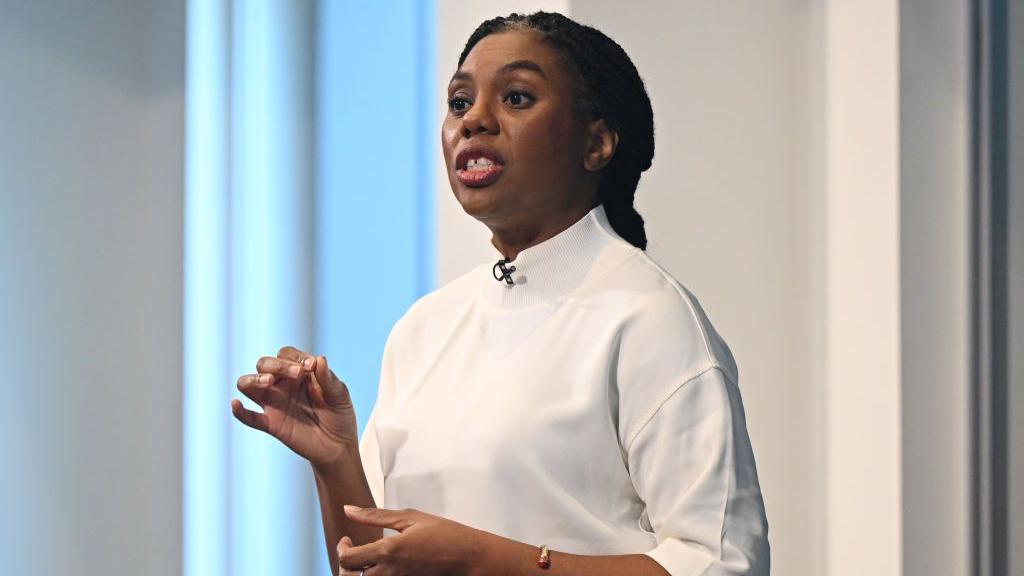
Conservative Party leader Kemi Badenoch has concerns about the new deal
UK Prime Minister Sir Keir Starmer has described it as a "landmark" deal, and that will "improve people's lives here at home".
European Commission President von der Leyen said the meeting was "an historic moment" and a "success".
"We are turning a page, a new chapter in our unique relationship," she said.
However, Conservative Party leader Kemi Badenoch said she is concerned that the UK was "becoming a rule-taker from Brussels once again". Brussels is where the European Parliament is based.
Reform UK MP Richard Tice said Sir Keir had "sold out" British fishing and said his party would go back on this deal if it won the next general election.
Liberal Democrat leader Ed Davey says the meeting marks "some positive first steps" towards rebuilding a relationship with Europe.
"The Prime Minister must ignore the naysayers and dinosaurs in Reform and the Conservative Party and be more ambitious in getting the best deal in the national interest," he added.
Green Party co-leader Carla Denyer called the reset "good news" for people in the UK amid the cost of living crisis but she says she would like to see even closer relations between the UK and the EU.
Northern Ireland's First Minister Michelle O'Neill has welcomed news of a deal between the UK and EU, but said that she would be looking closely at the details.
